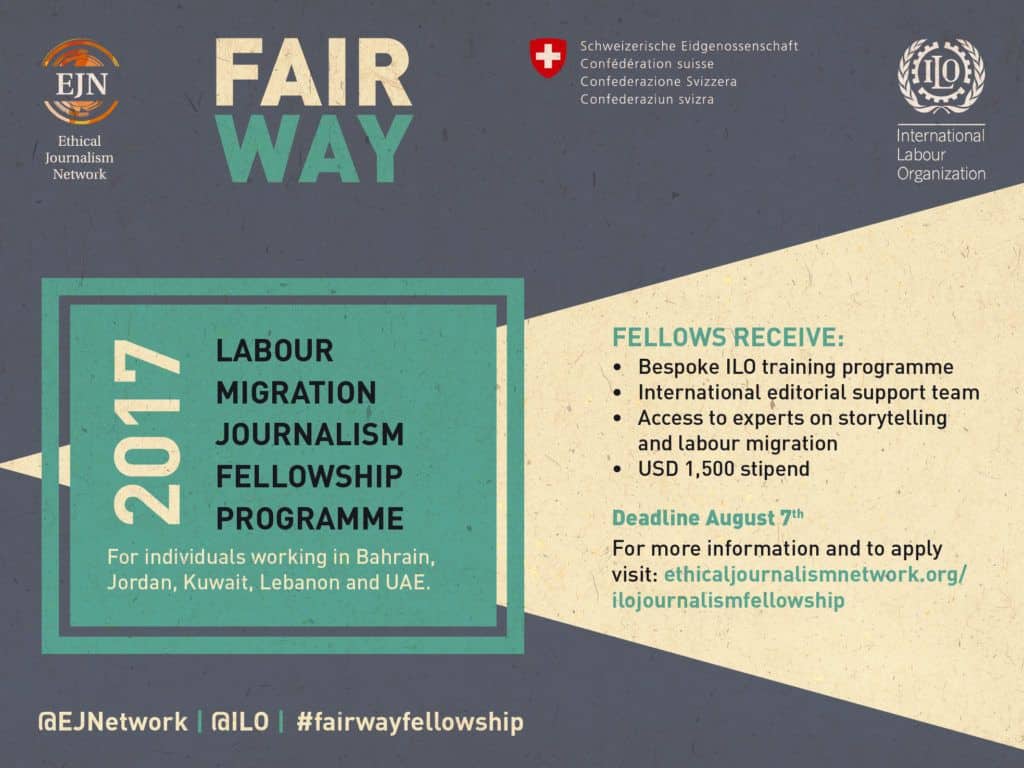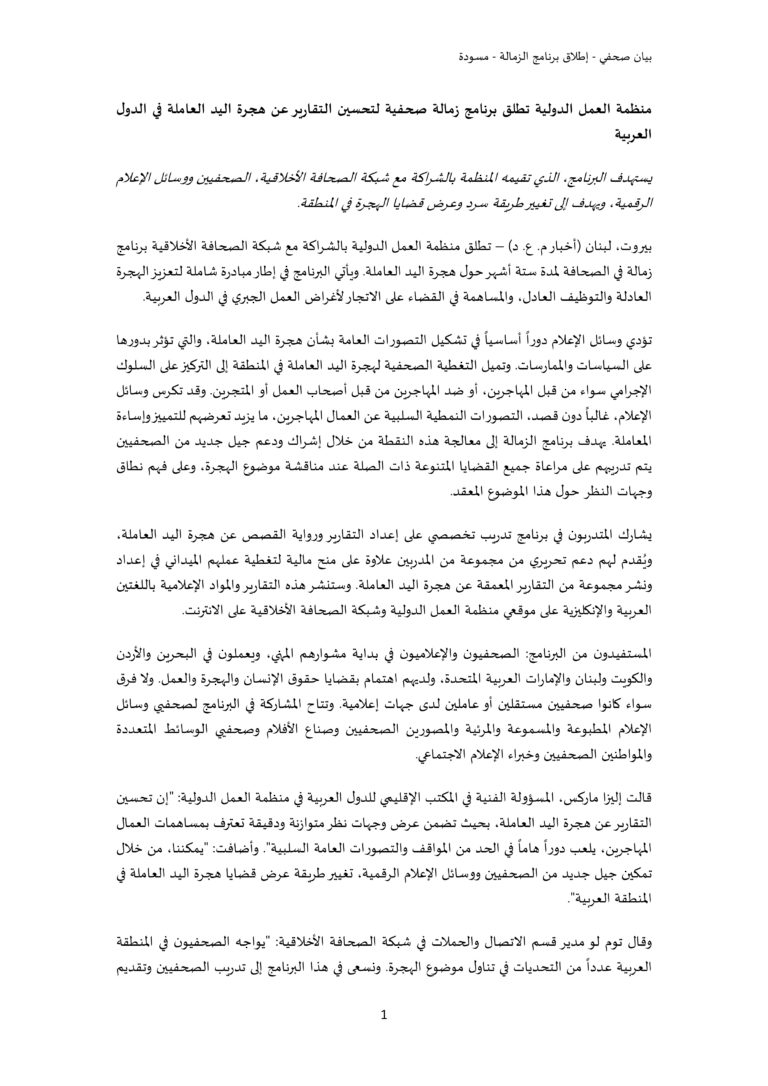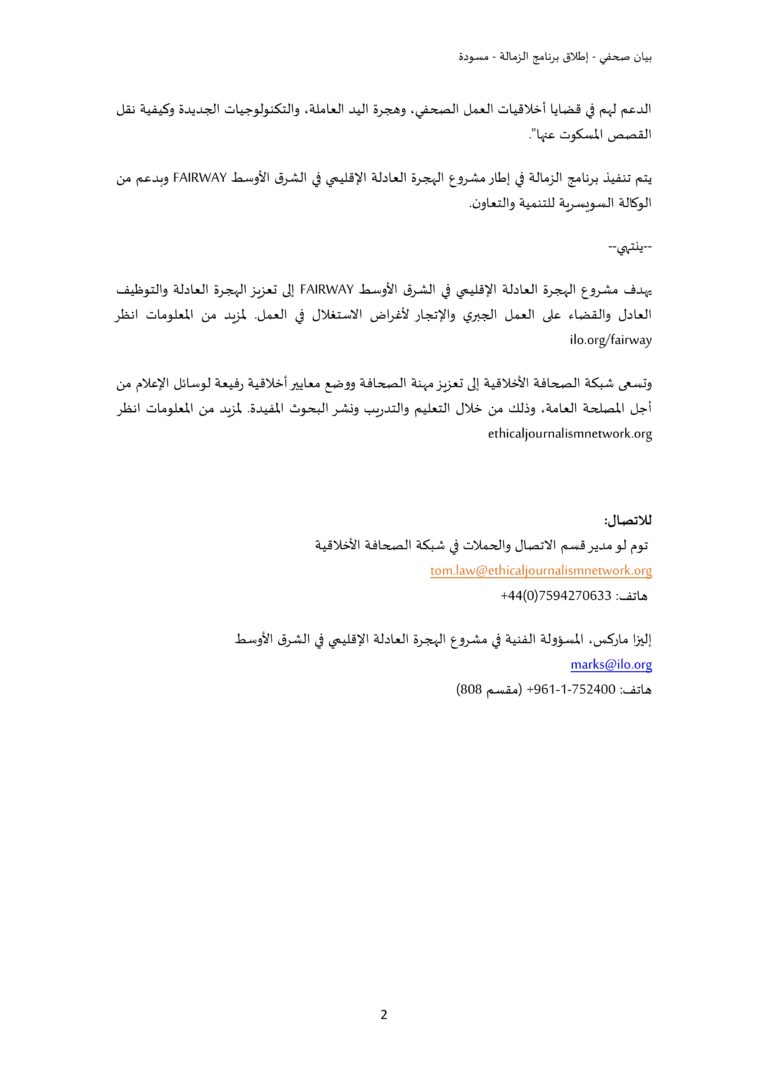Journalism fellowship to improve labour migration reporting
ILO launches journalism fellowship to improve reporting on labour migration in the Arab States
The programme – produced in partnership with the Ethical Journalism Network – targets journalists and digital media in order to change the narrative on migration in the region.

BEIRUT, Lebanon (ILO News) – The ILO, in partnership with the Ethical Journalism Network, launches a six-month Labour Migration Journalism Fellowship Programme. The programme is part of a comprehensive initiative to promote fair migration (including fair recruitment), and contribute to the elimination of human trafficking for forced labour across the Arab States region.
The media are instrumental in shaping public perceptions about labour migration, which can in turn influence policy and practice. Coverage of labour migration in the region tends to focus on criminal behaviour either by migrants or against migrants, by employers or traffickers. Often unwittingly, media can perpetuate negative stereotypes about labour migrants, increasing their vulnerability to discrimination and abuse. The fellowship programme aims to address this by engaging and supporting a new generation of journalists who are trained to consider the full range of diverse issues inherent in the migration debate and understand the range of perspectives on this complex topic.
Participants to the programme will take part in an expert training programme on reporting and storytelling on labour migration, be provided with editorial support from a board of mentors, and be given stipends to cover field work to produce and publish a series of in-depth stories on labour migration. Reports and multimedia will be published on the ILO and partner websites, in English and Arabic.
To be eligible for the programme, participants must be early-career journalists and media professionals working in Bahrain, Jordan, Kuwait, Lebanon and the UAE, who are passionate about human rights, migration, and labour issues. Participants can be freelance or working for an existing outlet. The programme is open to print, TV and radio journalists, photojournalists and film-makers, multimedia journalists, citizen journalists and social media experts.
“Improving reporting on labour migration to ensure balanced and accurate perspectives that recognise the contributions of migrant workers can play an important role in reducing negative public attitudes and perceptions,” said Eliza Marks, Technical Officer, ILO Regional Office for the Arab States. “In empowering a new generation of journalists and digital media, we can change the narrative on labour migration across the Arab region” Marks added.
“Journalists in the Arab region face a number of challenges in reporting on the topic of migration,” said Tom Law, Director of Campaigns and Communications Ethical Journalism Network. “Through this programme, we aim to train and support journalists on issues of ethical reporting, labour migration, new technologies and how to share untold stories,” Law said.
The fellowship is implemented through the ILO Regional Fair Migration Project in the Middle East (FAIRWAY), with the support of the Swiss Agency for Development and Cooperation (SDC).
— ENDS —

The ILO Regional Fair Migration Project in the Middle East (FAIRWAY) works to promote fair migration (including fair recruitment) and the elimination of forced labour and trafficking for labour exploitation. See ilo.org/fairway for more information.
The Ethical Journalism Network aims to strengthen the craft of journalism and to promote for the public benefit high ethical standards in media through education, training and publication of useful research. See ethicaljournalismnetwork.org/ilo-journalism-fellowship/ for more information
Contact:
Tom Law, Director of Campaigns and Communications Ethical Journalism Network
[email protected]
+44(0)7594270633
Eliza Marks, Technical Officer, FAIRWAY project
[email protected]
+961-1-752400 (ext. 808)


